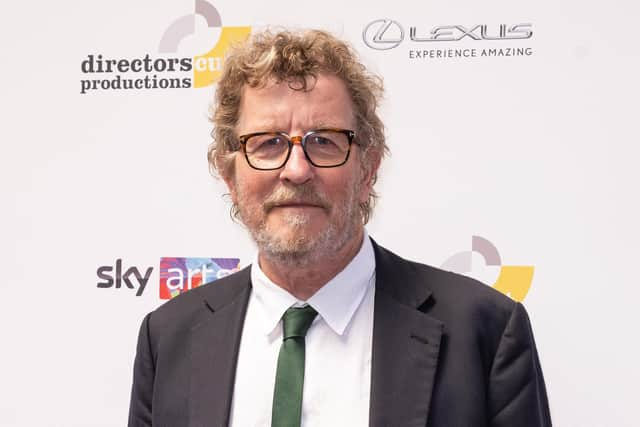Book review: The Seventh Son, by Sebastian Faulks
Sebastian Faulks’s novels are always serious, intelligent and compellingly readable – not a combination often found. There is variety too. I still have a warm admiration for his second novel, The Girl at the Lion d’Or, now, I suppose, more than 30 years old. Many more will recall his World War I bestseller Birdsong. He is always setting himself new challenges, and usually meeting them successfully. The Seventh Son is no exception. It is humane, gripping and disturbing.
Faulks is unusual among English novelists in having a keen interest in science, especially medical science, sometimes as here, perverted science. This new novel has a premise that might have attracted HG Wells or William Golding.
Advertisement
Hide AdIn need of money to fund her research, a young American academic, Talissa Adam, offers her services as a surrogate mother to the London-based and extremely rich Parn Institute. Its ambitious creator, Lukas Parn, an Australian of Eastern European extraction, is fascinated by genetics and unscrupulous. His particular interest is in those humans, especially Neanderthal Man who preceded Homo Sapiens, and may, according to recent research, have mated with him. (Golding’s second novel, incidentally, was about the Neanderthals.) Unbeknownst to Talissa, he persuades his chief scientist, a man who is both ambitious and resentful, to commit a breach of professional ethics and, one may add, of common decency, by switching a would-be father’s semen for Neanderthal semen from a recently discovered body preserved in ice. This monstrous and monstrously arrogant substitution is – of course – a fraud that must remain secret.


Talissa comes to London as an approved surrogate, lodges with an Indian lad who becomes a close friend, makes friends also with the eagerly waiting would-be parents. All this is charmingly done. The boy, Sam, is born. He’s a little strange, at least unusual, but is a loving and much-loved child with an affinity with birds and animals, and appears in most ways quite normal – a Crystal Palace fan. Tulissa is allowed to meet him when he is 12 and both likes and feels responsible for him. He has few friends at school but at Cambridge, where he studies engineering, he has friends keen on racing who are delighted to discover his affinity for horses and rare ability to pick winner.
Then, as you will expect, things begin to go wrong. There are rumours about goings-on at the Parn Institute. You eventually learn how these spread. Talissa secretly commissions a DNA test and then confronts Parn. That’s as much as a reviewer should reveal. It would be wrong even to say how and why the secret is disclosed. Enough to say that it is all too human and what follows is only too horribly human also.
This is a beautifully written novel. On the one hand you have love, kindness, responsibility; on the other monstrous arrogance and indifference to consequences. It’s appropriate that its publication should coincide with the release of the film about the making of the atom bomb, and Oppenheim’s wretched realization that he and his team had become as Gods, destroyers of life. Like Faust, Lucas Parn has made a pact with the Devil. In Thomas Mann’s last great novel, Doktor Faustus, that pact led to the Nazis and the Holocaust. Science is one of humanity’s triumphs; irresponsible Science is hellish.
I have often in reviews quoted Ford Madox Ford’s assertion that the novel – and, one should add the plays of Shakespeare and other masters of the theatre – can, more than any other art-form, make you think and feel at the same time. This novel does this. Much of it is so humane, reading so easily and agreeably, that the horror of its theme is all the more shocking. If the last 40 or so pages are somewhat disappointing, I don’t see how the ending could be other than it is. The theme is the arrogant betrayal of humanity, all the more horrifying because so much of the novel warmly celebrates love and kindness, responsibility for others, all humane values. Pride is one of the Seven Deadly Sins, but the better word for that is arrogance.
The Seventh Son, by Sebastian Faulks, Hutchinson Heinemann, £22. Sebastian Faulks is appearing at the Edinburgh International Book Festival on 28 August